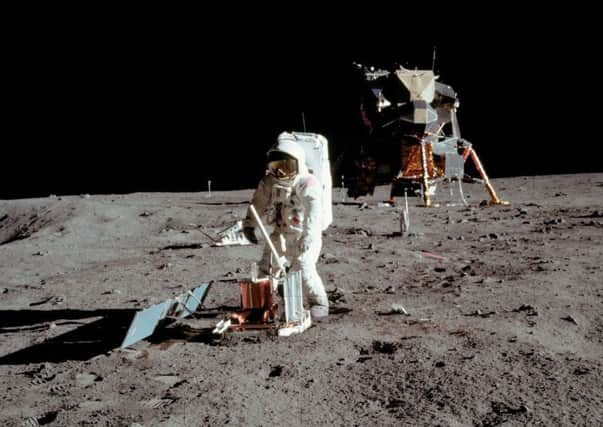Moon landing was ‘giant leap’ towards becoming an interplanetary species – leader comment


Fifty years ago today, humanity took a “giant leap” forward. And since that momentous day in 1969, when Neil Armstrong first set a human foot on the Moon, there have been a number of other truly extraordinary developments in the story of our species.
Without doubt, one of the most important has been the stunning pace of technological advancements in computing. The computers used by Nasa for the Apollo 11 mission were far less powerful than those many of us carry in our pockets today. An iPhone can have about 100,000 times more processing power than Apollo 11’s computer and seven million times more storage. However, we can probably all agree we are not getting anything like seven million times the benefit. Indeed, the ability to watch a cleverly manipulated ‘deep fake’ video which claims to prove the Moon landing was staged in a film studio over lunch is a step backwards.
Advertisement
Hide AdAdvertisement
Hide AdAmazing technology is all very well, but it’s how we use it that really matters. Some people think spending large amounts of money on spaceflight when there are huge, pressing problems on Earth is a needless waste. But the Moon landing, even though it was born out of the Space Race between two Cold War rivals, was one of those rare moments when pretty much the whole world was united in hope. It was a sign of the great things that we can achieve when we really put our minds to it. And those kinds of signs are really important.
Perhaps, in some ways, it happened too soon because in 1969 we weren’t in a position to exploit the ability to go the Moon. The last human landing was in 1972 as our interest quickly waned. In a sense, it was a premature prelude to an even bigger leap – sending humans to Mars. So much so that Nasa plans to return to the Moon as part of its preparations for a historic mission to the Red Planet.
The difficulties of such a journey cannot be understated but, as Nasa says, it will be “an achievement recalled with awe far into humanity’s future”.
Right now, we are an Earth-bound species. At some point in the near future, we are likely to break those shackles and become an interplanetary one.
Surely, that cannot but help to give us a new perspective on life, one that will help us with more everyday concerns, just as it did for the astronauts who saw that first ‘Earth-rise’ from the surface of the Moon.